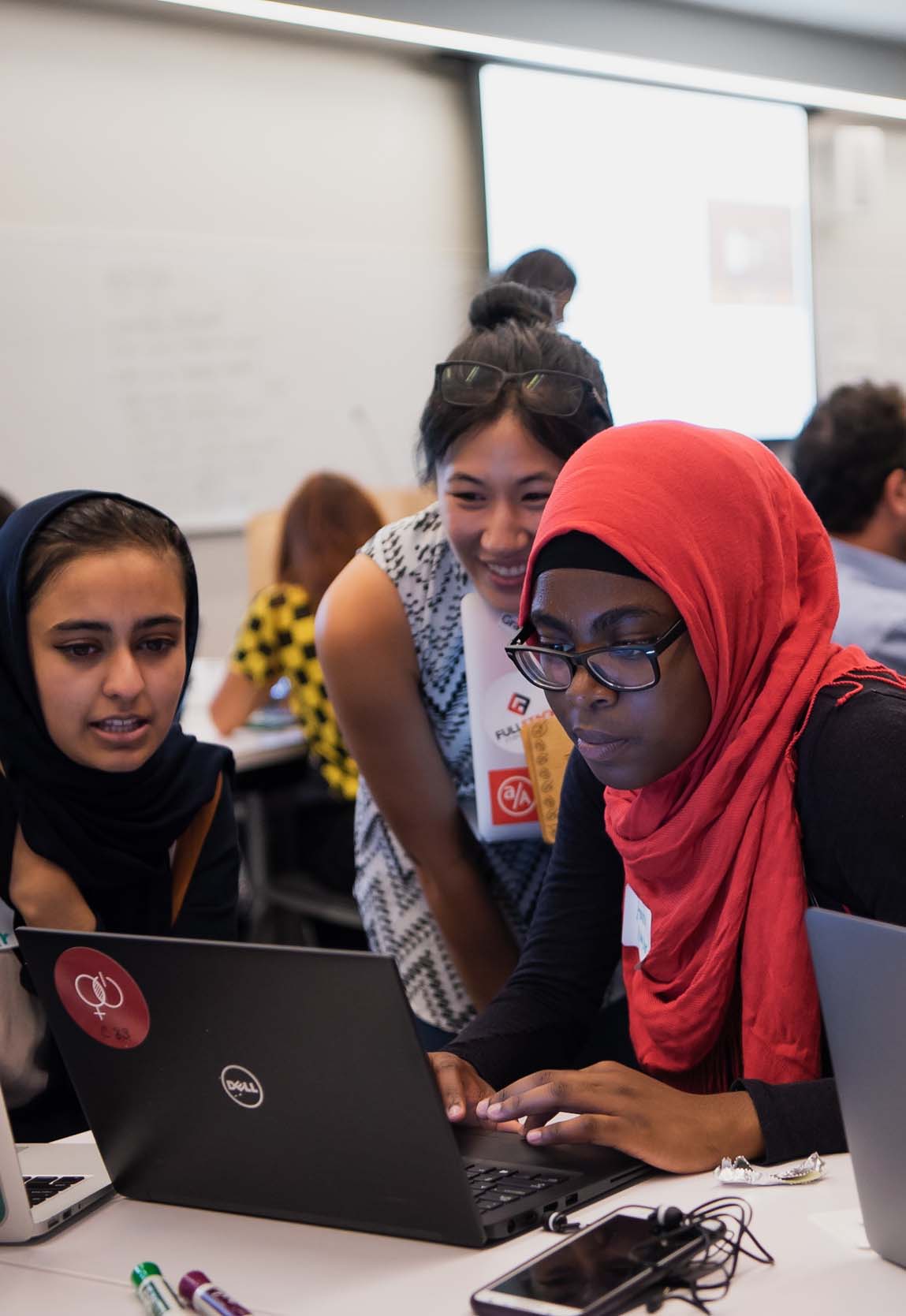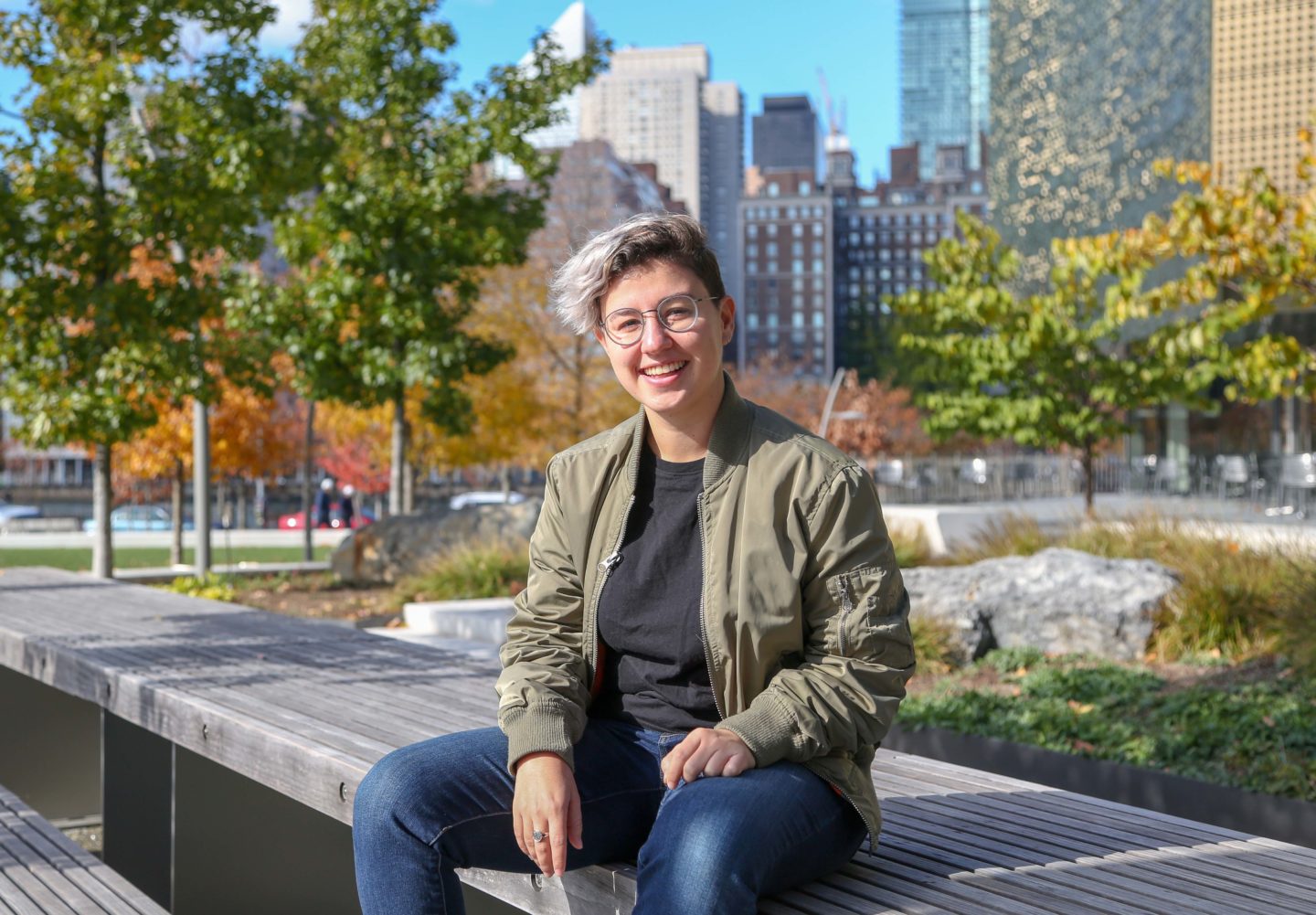Break Through Tech Awarded $2 Million Grant to Grow Talent Pipelines
Categories

With the artificial intelligence sector projected to see an annual 36.6% growth rate until 2030, it’s increasingly important that those impacted by the technology are at the forefront of its development. Yet only 12% of leading machine learning researchers are women. Cornell Tech’s Break Through Tech initiative addresses this inequity head on. The one-year extracurricular program equips undergraduate students with the skills needed to secure a job in fast-growing areas of tech and not only advances a more inclusive tech workforce, but also drives the AI era toward lasting economic and social prosperity in New York and beyond.
To advance its efforts of democratizing access to AI/ML coursework, Break Through Tech recently received a $2 million grant from the National Science Foundation (NSF). The funding will allow for the expansion of its Instructional Hub model for the AI program over the next five years, which will establish a national network of instructors for their courses to reach diverse learners from across the country who would not otherwise have access to this curriculum.
“Artificial intelligence is the future of our economy that will impact all of us – including societal impacts from health to climate and personal impacts on how we all live and work,” said Judith Spitz, Founder and Executive Director of Break Through Tech. “There are long-standing barriers to entry and lack of accessibility that stand in the way of women and non-binary individuals from underrepresented backgrounds pursuing an education and career in technology. This is a workforce issue, an economic opportunity issue, but it is also an innovation issue because we’re missing out on crucial perspectives and lived experiences when developing and evaluating machine learning models. This transformational grant from the National Science Foundation will ensure that we can create a strong and diverse talent pipeline that is representative of the people that use it.”
The grant will increase funding for the three existing Break Through Tech hubs – at Cornell Tech, Hofstra University and University of Illinois Urbana-Champaign – and will fuel new collaborations to create five new hubs. The award will also be leveraged to develop and implement a “Train the Trainer” program, which will provide faculty and graduate students with resources on how to teach applied, industry-relevant machine learning coursework using inclusive education, teaching experience and virtual best practices for a racially and gender diverse audience.
Prioritizing learning across the industry, the NSF also recognizes the importance of evaluating and sharing findings from the results and impact of the grant. Break Through Tech will disseminate best practices and lessons learned through research presentations and workshops at computing education conferences, create open source materials generated from this grant work via the Open Education Resources archive, develop a community of practice with the instructional hubs to scale support using collaborative problem solving and learnings, and host virtual webinars on best practices for inclusive computer science and virtual teaching.
“Since their inception, Cornell Tech and Break Through Tech have been working to educate and empower the next generation of tech leaders while supporting efforts to create a more inclusive and equitable tech industry,” added Deborah Estrin, Associate Dean for Impact at Cornell Tech. “This NSF grant will allow us to broaden those efforts to reach more communities around the country and meet the industry’s talent needs to bolster the future AI workforce. Our aim is to create a tech ecosystem that not only reflects the diversity of the people it serves but also incorporates a broad range of perspectives in AI development.”
Reflective of Cornell’s “any person, any study” promise, Break Through Tech is focused on constructing solutions to real-world problems by expanding entry into the tech industry. The organization’s AI program launched three years ago, thanks to a $26 million investment from Melinda French Gates’ company Pivotal Ventures, Ken Griffin, Citadel and Citadel Securities, the Hopper-Dean Foundation and New Venture Fund. Following an expansion from New York to MIT’s Schwarzman College of Computing and UCLA’s Samueli School of Engineering, over 1,000 students have participated in the program, 64% of whom were Black, Latino, Native American, a first-generation college student and/or from a low-income background. The NSF award aims to double the number of students Break Through Tech serves by the end of December 2027.
“With the explosion of AI we recognize both the extraordinary promise as well as the potential peril of this advanced technology. The most important thing we can do to ensure that this next wave of innovation uplifts all of society, is to make sure that the people developing this technology represent all of us,” Spitz said. “It was an honor to receive this grant which focuses on democratizing access to academic opportunity. We will leverage our learnings and continue our mission to improve access to technology education and the tech industry and act as a catalyst for the NYC tech ecosystem.”
Media Highlights
Tech Policy Press
Content Moderation, Encryption, and the LawRELATED STORIES




